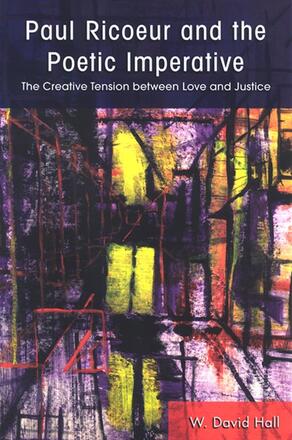
Paul Ricoeur and the Poetic Imperative
The Creative Tension between Love and Justice
Alternative formats available from:
Looks at Ricoeur’s writings on love and justice, prominent toward the end of his life, and how these serve as an interpretive key to his thought as a whole.
Description
This book addresses the thought of Paul Ricoeur (1913–2005), paying particular attention to the creative tension between love and justice as principle themes in his work. Dealing with these issues chiefly in his writings on religion, Ricoeur explored the tension between the biblical ideals of the golden rule—the religious formulation of a principle of justice—and the love command. Author W. David Hall shows how these ideals continually speak to each other in Ricoeur's work, how they operate creatively on each other, and how each serves as a corrective to the perversions of the other. Hall maintains that although issues of love and justice became prominent comparatively late in Ricoeur's corpus, they provide a sustained trajectory throughout his work and are an important interpretive key for understanding Ricoeur's intellectual project as a whole.
W. David Hall is Assistant Professor of Religion and Philosophy at Centre College and coeditor (with John Wall and William Schweiker) of Paul Ricoeur and Contemporary Moral Thought.
Reviews
"…offers a well-argued and illuminating discussion of Ricoeur's ethical project … Hall's substantial contribution to Ricoeurian scholarship is especially relevant for readers interested in Ricoeur's theological ethics, ethical hermeneutics, and dialectics of experience. " — Conversations in Religion and Theology
"Hall draws out insights on ethics, selfhood, and a host of other topics from Ricoeur's entire career, making this a worthwhile book for theologians and philosophers interested in hermeneutics, phenomenology, and related subjects. " — Religious Studies Review
"W. David Hall offers a finely textured portrayal of Paul Ricoeur's writings as a thematic unity of hermeneutical phenomenology, philosophical anthropology, and theological poetics. Of singular importance is the author's sustained argument that Ricoeur's theological texts provide an often overlooked context for understanding his wider philosophical project. " — Calvin O. Schrag, author of Convergence amidst Difference: Philosophical Conversations across National Boundaries